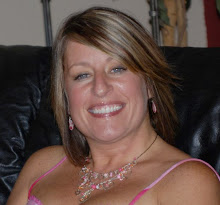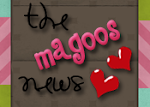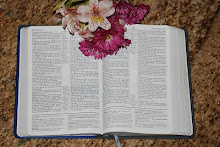 It is time for a FIRST Wild Card Tour book review! If you wish to join the FIRST blog alliance, just click the button. We are a group of reviewers who tour Christian books. A Wild Card post includes a brief bio of the author and a full chapter from each book toured. The reason it is called a FIRST Wild Card Tour is that you never know if the book will be fiction, non~fiction, for young, or for old...or for somewhere in between! Enjoy your free peek into the book!
It is time for a FIRST Wild Card Tour book review! If you wish to join the FIRST blog alliance, just click the button. We are a group of reviewers who tour Christian books. A Wild Card post includes a brief bio of the author and a full chapter from each book toured. The reason it is called a FIRST Wild Card Tour is that you never know if the book will be fiction, non~fiction, for young, or for old...or for somewhere in between! Enjoy your free peek into the book!You never know when I might play a wild card on you!
Today's Wild Card authors are:
and the book:
Kregel Publications (March 9, 2011)
ABOUT THE AUTHORS:
 Heather Munn was born in Northern Ireland of American parents and grew up in the south of France. She decided to be a writer at the age of five when her mother read Laura Ingalls Wilder’s books aloud, but worried that she couldn’t write about her childhood since she didn’t remember it. When she was young, her favorite time of day was after supper when the family would gather and her father would read a chapter from a novel. Heather went to French school until her teens, and grew up hearing the story of Le Chambonsur-Lignon, only an hour’s drive away. She now lives in rural Illinois with her husband, Paul, where they offer free spiritual retreats to people coming out of homelessness and addiction. She enjoys wandering in the woods, gardening, writing, and splitting wood.
Heather Munn was born in Northern Ireland of American parents and grew up in the south of France. She decided to be a writer at the age of five when her mother read Laura Ingalls Wilder’s books aloud, but worried that she couldn’t write about her childhood since she didn’t remember it. When she was young, her favorite time of day was after supper when the family would gather and her father would read a chapter from a novel. Heather went to French school until her teens, and grew up hearing the story of Le Chambonsur-Lignon, only an hour’s drive away. She now lives in rural Illinois with her husband, Paul, where they offer free spiritual retreats to people coming out of homelessness and addiction. She enjoys wandering in the woods, gardening, writing, and splitting wood.  Lydia Munn was homeschooled for five years because there was no school where her family served as missionaries in the savannahs of northern Brazil. There was no public library either, but Lydia read every book she could get her hands on. This led naturally to her choice of an English major at Wheaton College. Her original plan to teach high school English gradually transitioned into a lifelong love of teaching the Bible to both adults and young people as a missionary in France. She and her husband, Jim, have two children: their son, Robin, and their daughter, Heather.
Lydia Munn was homeschooled for five years because there was no school where her family served as missionaries in the savannahs of northern Brazil. There was no public library either, but Lydia read every book she could get her hands on. This led naturally to her choice of an English major at Wheaton College. Her original plan to teach high school English gradually transitioned into a lifelong love of teaching the Bible to both adults and young people as a missionary in France. She and her husband, Jim, have two children: their son, Robin, and their daughter, Heather. SHORT BOOK DESCRIPTION:
 When had God ever stopped a war because a teenager asked him to?
When had God ever stopped a war because a teenager asked him to? For fifteen-year-old Julien Losier, life will never be the same. His family has relocated to southern France to outrun Hitler’s menace. But Julien doesn’t want to run. He doesn’t want to huddle around the radio at night, waiting to hear news through buzzing static. Julien doesn’t want to wait.
Angry, frustrated, and itching to do something, Julien finds a battle everywhere he turns.
Soon after his family opens their house to a Jewish boy needing refuge, Julien meets Nina, a young Austrian who has fled her home by her father’s dying command. Nina’s situation is grave and Julien suddenly realizes the enormity of having someone’s life or death depend on… him.
Thrown together by a conflict that’s too big for them to understand, these young lives struggle to know what to do, even if it is not enough. Is there a greater purpose in the shadows of this terrible war? Or will their choices put them in greater danger?
Endorsements:
“The Munns have written an engrossing historical novel that is faithful to the actual events of World War II in western Europe during the tumultuous year 1940. But How Huge the Night is more than good history; it is particularly refreshing because the reader sees the conflict through the lives of teenagers who are forced to grapple with their honest questions about the existence and goodness of God in the midst of community, family, and ethnic tensions in war-ravaged France.”—Lyle W. Dorsett, Billy Graham Professor of Evangelism, Beeson Divinity School, Samford University
“Seldom have the horrors of war upon adolescents—or the heroism of which they are capable—been so clearly portrayed. I loved this coming-of-age story.”—Patricia Sprinkle, author of Hold Up the Sky
“The book expertly weaves together the lives of its characters at a frightening moment in conflicted times. As we read of their moral dilemmas and of their choices, we too wonder, Would I do has these in the story have done?”—Karen Mains, Director, Hungry Souls
Product Details:
List Price: $14.99
Reading level: Young Adult
Paperback: 304 pages
Publisher: Kregel Publications (March 9, 2011)
Language: English
ISBN-10: 082543310X
ISBN-13: 978-0825433108
AND NOW...AN EXCERPT:
From Chapter 23
Thursday the power came back on. They sat in the living room, around the radio that crackled with static; they looked at each other, and then away. The room grew quiet as the announcer began to speak.
“Since Mussolini’s declaration of war on France two days ago, Italian troops are pushing west—”
Mama was on her feet. “The thief!” she hissed. “The backstabber, the coward!” Her face was red. Everyone was staring. She sat down.
Papa looked at her. “Saw his chance, I guess.”
“He’s a shame to his nation,” Mama snapped. Julien stared. Then they heard the shift in the announcer’s voice and turned sharply to the radio.
“German troops are approaching Paris at a rapid pace. As we speak, the vanguard is reported to be fifteen kilometers from Versailles. This will be our last broadcast for a while.”
They did not look at each other. The silence was total.
“Today Paris has been declared an ‘open city.’ Our military will not defend it. This decision was made to avoid bombardment and the great destruction and loss of life that it entails. . . .”
Julien realized he had not been breathing. It was an amazing thing, breathing. Tears shone in Mama’s eyes.
“They won’t bomb Paris,” said Papa quietly.
“They won’t bomb Paris,” Mama whispered.
Benjamin stood, his face very still. He walked slowly to the door and took the stairs.
Julien waited, breathing, seeing Paris; seeing Vincent and his mother look up out of their second-floor window at a clear blue sky. He waited until the news ended, until they had read a psalm that said The Lord has delivered.
Then he followed Benjamin.
Benjamin’s door was closed. Julien hesitated, biting his lip, and went into his own room.
He looked out the window in the fading light. They wouldn’t defend it. This was it, then. What Pastor Alex said was true. German tanks would roll down the Champs-Elysées for real in just a couple days. Then the boches would come here. And they would stay.
He pulled Vincent’s last letter out from under his nightstand. I can’t believe you almost died, it said. That’s crazy. He got up, and went and knocked on Benjamin’s door.
No answer.
“Benjamin? You all right?”
“Fine.”
Julien opened the door. Benjamin turned quickly, scowling.
“Did I say you could come in?”
“Well sorry,” Julien growled. How am I supposed to help when he’s like this? “Just wanted to say good night.”
“Good night then.”
“Look, it’s not as bad as it could have been, okay? They could have bombed the place to shreds like Ro—” He bit his tongue.
“You’re right,” said Benjamin, looking away. “That’s good for your relatives. I’m glad.”
“And your parents!”
“Nothing’s good for my parents.” His voice was toneless. “Look, Julien, we can talk about this in the morning. I need to go to bed.”
Julien knew when to quit. He turned away. “Sleep well.”
“You too.”
But he couldn’t. He turned and turned in his bed, twisting the sheets.
He got up and looked out at the crescent moon and the stars high over Tanieux, so white, so far, always the same; they would still be there when the Germans were here; they would still be there all his life. They were still there over Rotterdam, too. It didn’t make any difference.
When he finally slept, he dreamed: Paris on the fourteenth of July, the fireworks, bursts of blue, of gold, of red above the city. A whirling rocket going up with a hiss and a bang. Then a louder bang. Then a bang that threw up a great shower of dirt and stones, and people screaming, people running as the shells began to fall—
He woke, and lay shivering. He got up to close the window. The stars shone down like cold eyes.
He heard a faint scratching. Mice maybe. A floorboard creaked. He listened.
And he heard it. Very slow, stealthy footsteps going down the stairs.
He sat up slowly. Magali or Benjamin. Tiptoeing down the stairs to the kitchen, wishing there was something to eat. . . . He got out of bed and leaned out the window, watching for the faint light that would come through from the kitchen. No light came.
But on the ground floor, the heavy front door opened, and a dark shape slipped out into the street. A shadow with a suitcase in its hand.
He ran across the hall and threw open Benjamin’s door. A neatly made bed, a letter on the pillow. He grabbed it, ran back to his room, jerked his pants on over his pajamas, and ran downstairs in his socks. He’d catch him. Benjamin was on foot. He had to catch him. He scrawled on the flip side of the note, I’ve gone after him, pulled on his shoes and jacket, and flew down the stairs and into the dark.
He raced down the shadowed street and stopped at the corner, heart pounding, looking both ways. North, over the hill: the road to St. Etienne. A train to Paris, like he’d said? There were no trains now. Or south—south to where? Oh Lord if I choose wrong I’ll never find him.
Think. What would he do if it were him? He’d go south—north was suicide, but—he didn’t know, he didn’t know Benjamin. Who did? Nothing is good for my parents, he’d said—he didn’t seem to even care that Paris wouldn’t be bombed—
Because his parents weren’t in Paris.
Julien turned, suddenly sure, and ran.
The Kellers had left Germany because of Hitler and his people. Would they stay in Paris and wait for them? “Let’s walk south,” Benjamin had said—and that stupid map—he should have guessed.
He ran, breathing hard, his eyes on the dark road ahead. Oh God. Oh Jesus. Don’t let me miss him please—please—
He broke free of the houses; the Tanne gleamed in front of him under the splintered moon, cut by the dark curve of the bridge. He froze. He ducked into the shadows and breathed.
There on the bridge was a slender figure leaning on the parapet, looking down at the dark water.
Oh God. Oh Jesus. Now what?
Benjamin turned and took a long, last look at Tanieux. Then he adjusted his backpack, picked up his suitcase, and walked away.
Julien slipped out of the shadows and up to the bridge, his heart beating help me Jesus help me, his mind searching for words. Come home. And if he said no? Drag him? Help me Jesus. He was across the bridge, ten paces behind Benjamin; he broke into a silent run on the grassy verge of the road. He caught up to him. Laid a hand on his arm.
“Benjamin.”
Benjamin whirled, eyes wild in the moonlight. They stared at each other. “Why.” said Julien. “Tell me why.” His voice was harder than he meant it to be.
“Let me go.”
“No.” He tightened his grip on Benjamin’s arm.
Benjamin tried to pull away. “Julien, let me go. You have no idea. You have no idea what they’re like.”
“The boches?” This time his voice came out small.
“The Nazis, Julien. Ever heard of them? Yeah, you heard they don’t like Jews—I don’t think any of you people understand.” The sweep of his arm took in the school and the sleeping town. “Your parents are great, Julien—offering shelter and all—they really are. But they don’t know. Yet.”
But they do. They know. “Know what? What’ll they—do?”
“I’m not waiting around to find out.” His face was white and deadly serious. “Trust me on this, Julien. They are coming here and when they do, it’s better for you if I’m long gone.” I believe it is very dangerous to be a Jew in Germany. And soon—
Julien stood silent. The night wind touched his face; the hills were shadows on the horizon where they blotted out the stars. Suddenly he felt how large the world was, how huge the night, how small they stood on the road in the light of the waning moon. Ahead, the road bent into the pine woods, and in his mind, Julien saw Benjamin walking away, a small form carrying a suitcase into the darkness under the trees. His fingers bit into Benjamin’s arm.
“I don’t care,” he said savagely. “Where would you go?”
Benjamin said nothing; the moonlight quivered in his eyes as they filled with tears. He turned his head away. “I don’t know.” His voice shook.
Julien caught him by the shoulders, gripped him hard. “Well I do,” he said fiercely. “You’re coming home.”
Thursday the power came back on. They sat in the living room, around the radio that crackled with static; they looked at each other, and then away. The room grew quiet as the announcer began to speak.
“Since Mussolini’s declaration of war on France two days ago, Italian troops are pushing west—”
Mama was on her feet. “The thief!” she hissed. “The backstabber, the coward!” Her face was red. Everyone was staring. She sat down.
Papa looked at her. “Saw his chance, I guess.”
“He’s a shame to his nation,” Mama snapped. Julien stared. Then they heard the shift in the announcer’s voice and turned sharply to the radio.
“German troops are approaching Paris at a rapid pace. As we speak, the vanguard is reported to be fifteen kilometers from Versailles. This will be our last broadcast for a while.”
They did not look at each other. The silence was total.
“Today Paris has been declared an ‘open city.’ Our military will not defend it. This decision was made to avoid bombardment and the great destruction and loss of life that it entails. . . .”
Julien realized he had not been breathing. It was an amazing thing, breathing. Tears shone in Mama’s eyes.
“They won’t bomb Paris,” said Papa quietly.
“They won’t bomb Paris,” Mama whispered.
Benjamin stood, his face very still. He walked slowly to the door and took the stairs.
Julien waited, breathing, seeing Paris; seeing Vincent and his mother look up out of their second-floor window at a clear blue sky. He waited until the news ended, until they had read a psalm that said The Lord has delivered.
Then he followed Benjamin.
Benjamin’s door was closed. Julien hesitated, biting his lip, and went into his own room.
He looked out the window in the fading light. They wouldn’t defend it. This was it, then. What Pastor Alex said was true. German tanks would roll down the Champs-Elysées for real in just a couple days. Then the boches would come here. And they would stay.
He pulled Vincent’s last letter out from under his nightstand. I can’t believe you almost died, it said. That’s crazy. He got up, and went and knocked on Benjamin’s door.
No answer.
“Benjamin? You all right?”
“Fine.”
Julien opened the door. Benjamin turned quickly, scowling.
“Did I say you could come in?”
“Well sorry,” Julien growled. How am I supposed to help when he’s like this? “Just wanted to say good night.”
“Good night then.”
“Look, it’s not as bad as it could have been, okay? They could have bombed the place to shreds like Ro—” He bit his tongue.
“You’re right,” said Benjamin, looking away. “That’s good for your relatives. I’m glad.”
“And your parents!”
“Nothing’s good for my parents.” His voice was toneless. “Look, Julien, we can talk about this in the morning. I need to go to bed.”
Julien knew when to quit. He turned away. “Sleep well.”
“You too.”
But he couldn’t. He turned and turned in his bed, twisting the sheets.
He got up and looked out at the crescent moon and the stars high over Tanieux, so white, so far, always the same; they would still be there when the Germans were here; they would still be there all his life. They were still there over Rotterdam, too. It didn’t make any difference.
When he finally slept, he dreamed: Paris on the fourteenth of July, the fireworks, bursts of blue, of gold, of red above the city. A whirling rocket going up with a hiss and a bang. Then a louder bang. Then a bang that threw up a great shower of dirt and stones, and people screaming, people running as the shells began to fall—
He woke, and lay shivering. He got up to close the window. The stars shone down like cold eyes.
He heard a faint scratching. Mice maybe. A floorboard creaked. He listened.
And he heard it. Very slow, stealthy footsteps going down the stairs.
He sat up slowly. Magali or Benjamin. Tiptoeing down the stairs to the kitchen, wishing there was something to eat. . . . He got out of bed and leaned out the window, watching for the faint light that would come through from the kitchen. No light came.
But on the ground floor, the heavy front door opened, and a dark shape slipped out into the street. A shadow with a suitcase in its hand.
He ran across the hall and threw open Benjamin’s door. A neatly made bed, a letter on the pillow. He grabbed it, ran back to his room, jerked his pants on over his pajamas, and ran downstairs in his socks. He’d catch him. Benjamin was on foot. He had to catch him. He scrawled on the flip side of the note, I’ve gone after him, pulled on his shoes and jacket, and flew down the stairs and into the dark.
He raced down the shadowed street and stopped at the corner, heart pounding, looking both ways. North, over the hill: the road to St. Etienne. A train to Paris, like he’d said? There were no trains now. Or south—south to where? Oh Lord if I choose wrong I’ll never find him.
Think. What would he do if it were him? He’d go south—north was suicide, but—he didn’t know, he didn’t know Benjamin. Who did? Nothing is good for my parents, he’d said—he didn’t seem to even care that Paris wouldn’t be bombed—
Because his parents weren’t in Paris.
Julien turned, suddenly sure, and ran.
The Kellers had left Germany because of Hitler and his people. Would they stay in Paris and wait for them? “Let’s walk south,” Benjamin had said—and that stupid map—he should have guessed.
He ran, breathing hard, his eyes on the dark road ahead. Oh God. Oh Jesus. Don’t let me miss him please—please—
He broke free of the houses; the Tanne gleamed in front of him under the splintered moon, cut by the dark curve of the bridge. He froze. He ducked into the shadows and breathed.
There on the bridge was a slender figure leaning on the parapet, looking down at the dark water.
Oh God. Oh Jesus. Now what?
Benjamin turned and took a long, last look at Tanieux. Then he adjusted his backpack, picked up his suitcase, and walked away.
Julien slipped out of the shadows and up to the bridge, his heart beating help me Jesus help me, his mind searching for words. Come home. And if he said no? Drag him? Help me Jesus. He was across the bridge, ten paces behind Benjamin; he broke into a silent run on the grassy verge of the road. He caught up to him. Laid a hand on his arm.
“Benjamin.”
Benjamin whirled, eyes wild in the moonlight. They stared at each other. “Why.” said Julien. “Tell me why.” His voice was harder than he meant it to be.
“Let me go.”
“No.” He tightened his grip on Benjamin’s arm.
Benjamin tried to pull away. “Julien, let me go. You have no idea. You have no idea what they’re like.”
“The boches?” This time his voice came out small.
“The Nazis, Julien. Ever heard of them? Yeah, you heard they don’t like Jews—I don’t think any of you people understand.” The sweep of his arm took in the school and the sleeping town. “Your parents are great, Julien—offering shelter and all—they really are. But they don’t know. Yet.”
But they do. They know. “Know what? What’ll they—do?”
“I’m not waiting around to find out.” His face was white and deadly serious. “Trust me on this, Julien. They are coming here and when they do, it’s better for you if I’m long gone.” I believe it is very dangerous to be a Jew in Germany. And soon—
Julien stood silent. The night wind touched his face; the hills were shadows on the horizon where they blotted out the stars. Suddenly he felt how large the world was, how huge the night, how small they stood on the road in the light of the waning moon. Ahead, the road bent into the pine woods, and in his mind, Julien saw Benjamin walking away, a small form carrying a suitcase into the darkness under the trees. His fingers bit into Benjamin’s arm.
“I don’t care,” he said savagely. “Where would you go?”
Benjamin said nothing; the moonlight quivered in his eyes as they filled with tears. He turned his head away. “I don’t know.” His voice shook.
Julien caught him by the shoulders, gripped him hard. “Well I do,” he said fiercely. “You’re coming home.”
My Thoughts:
How Huge the Night by Mother/Daughter team Heather & Lydia Munn is an amazing read! Geared towards Young Adult Readers, it is definitely one to add to the summer reading list! The story will captivate you and take you back to Europe during WWII. Julien, a 15 year old boy, is adjusting to the war and all that comes with it. I love how he learns to truly rely on God, as well as what it means to listen to HIM too. You also meet Nina and Gustav, Jewish siblings who are running and hiding from the Nazi's. After the death of their Father, the struggles they face as they journey from Austria to France seem overwhelming and at times more than they can handle.
How Huge the Night is based on real events and the Authors' research is flat out astounding. So is the Authors note explaining the true Historical events!
For those who love to read Historical Novels or books based on WWII this is a MUST READ! It is excellent for teens and would be awesome for those who desire to learn more during this time in our History. Book clubs, Homeschool Families or those who have kids who just love to read stories based on WWII ~ This is Definitely one you will want to add to your Home Library!
Happy Reading!















